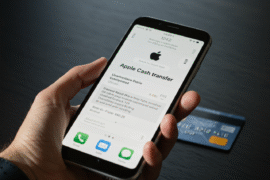This article may contain references to products or services from one or more of our advertisers or partners. We may receive compensation when you click on links to those products or services. Nonetheless, our opinions are our own.
The information presented in this article is accurate to the best of our knowledge at the time of publication. However, information is subject to change, and no guarantees are made about the continued accuracy or completeness of this content after its publication date.
Key Highlights
- Take charge of your financial future with proven methods for growth.
- We’ll explore setting financial goals, budgeting, debt management, and more.
- Tools like Quicken software can simplify your financial journey.
- Learn how to build an emergency fund and gain control over your finances.
- Discover expert insights and strategies to accelerate your path to financial freedom.
Introduction
In today’s world, many people want to have steady finances and growth. It is important to make smart choices about your personal finance so you can secure your future. This blog will share helpful strategies and tools, like Quicken software, to assist you in managing your money well. By using these tips, you can set yourself up for real financial growth.
Understanding Your Financial Landscape
Before starting any journey, you need to know where you begin. This idea applies to your money journey too. Understanding your current financial situation is the first important step for managing and growing your money well.
Assessing Your Current Financial Health
To really understand your money, it is not enough to just know your bank balance. This is where personal finance management comes in. It means keeping a clear record of your income, expenses, assets, and debts.
The good news is that we live in a time when technology makes this easier. Intuit software is popular for being easy to use. It can help you quickly enter your financial data, sort your transactions, and create reports. These reports give you helpful insights about how you spend your money.
This assessment is important for your financial growth plan. It helps you spot areas to improve and make smart choices to reach your goals.
Setting Clear Financial Goals
Defining clear financial goals is important for your money journey. These goals give you direction and motivation. They can be buying a home, saving for your kids’ education, or planning for a comfortable retirement.
Using the SMART method (Specific, Measurable, Achievable, Relevant, and Time-Bound) can help. Instead of saying, “I want to save more,” say, “I want to save $5,000 in the next 12 months for a car down payment.”
Quicken Business & Personal software can help you set and track these goals. It lets you budget your income, check progress, and make changes when needed, keeping you on track for financial success.
Getting Started with Financial Planning
Financial planning may look hard, but you can simplify it. Break it down into steps. Start by setting your goals. Then, figure out how much risk you can handle. Next, create a budget. Finally, look into various ways to invest.
Tools and Resources You Will Need
Many tools and resources can help make financial planning easier. Quicken software is especially good for people who want to manage their finances better.
Quicken provides features like budgeting tools, investment tracking, debt management, and rental property management. The Quicken app has a user-friendly design, helping you plan your financial future easily.
Building a Budget That Works for You
Creating a budget is key to managing your money well. This involves closely monitoring your income and expenses. This way, you can make sure you spend less than you make and save money for your goals.
Personal finance software like Quicken or Mint can help make budgeting easier by organizing your transactions and showing where you overspend.
Here’s a simple way to budget:
- Track your income and expenses.
- Know what’s a must-have and what is not.
- Set realistic spending limits for each category.
- Make saving automatic.
Step-by-Step Guide to Financial Growth
Once you understand your finances and set clear goals, it’s time to plan for your growth. This means focusing on important strategies like saving for emergencies and paying off debt.
Step 1: Creating an Emergency Fund
An emergency fund is like a safety net for your money. It helps you deal with unexpected issues, such as medical bills, job loss, or car repairs.
Experts say you should save enough for three to six months of your living costs. This money should be in an account you can get to easily. Start by setting a savings goal. Even saving a small amount each week can make a difference.
Step 2: Paying Off Debt
High-interest debt, especially credit card debt, can significantly hinder your financial progress. Paying it down should be a top priority on your path to financial freedom. Consider these strategies:
| Method | Description |
|---|---|
| Debt Snowball | Pay off the smallest debts first for motivation. |
| Debt Avalanche | Prioritize debts with the highest interest rates to save money. |
| Debt Consolidation | Combine multiple debts into a single loan for lower interest rates. |
Conclusion
Managing your money is very important for financial stability and growth. To start, know where you stand financially. Next, set clear goals and make a simple budget. This will help you create a strong base for financial success. Building an emergency fund and paying off debt are also key steps. Financial planning doesn’t end; check and adjust it regularly. Start your journey to financial control today!
Frequently Asked Questions (FAQs)
What Is the Best Way to Start Investing?
For those new to investing, a low-cost index fund or ETF is a good choice to start. Research before investing, diversify your portfolio, and consult a financial expert if needed.
How Often Should I Review My Financial Plan?
Check your financial plan at least once a year or when big life events happen. Regular reviews help you take advantage of new opportunities and stay on track.
Can Financial Growth Strategies Differ for Various Income Levels?
Yes, while the basics stay the same, budgeting, saving, investing, and debt management can be adjusted based on income and spending habits.
What Are Some Common Mistakes in Financial Planning?
Common mistakes include:
- Not making a budget.
- Spending more than you can afford.
- Not saving money regularly.
- Poor debt management.
- Ignoring long-term goals like retirement planning.
Avoiding these mistakes can help you secure a better financial future.

Reviewed and edited by Albert Fang.
See a typo or want to suggest an edit/revision to the content? Use the contact us form to provide feedback.
At FangWallet, we value editorial integrity and open collaboration in curating quality content for readers to enjoy. Much appreciated for the assist.
Did you like our article and find it insightful? We encourage sharing the article link with family and friends to benefit as well - better yet, sharing on social media. Thank you for the support! 🍉
Article Title: Quicken Your Finances: Proven Methods for Financial Growth
https://fangwallet.com/2025/02/10/quicken/The FangWallet Promise
FangWallet is an editorially independent resource - founded on breaking down challenging financial concepts for anyone to understand since 2014. While we adhere to editorial integrity, note that this post may contain references to products from our partners.
The FangWallet promise is always to have your best interest in mind and be transparent and honest about the financial picture.
Become an Insider

Subscribe to get a free daily budget planner printable to help get your money on track!
Make passive money the right way. No spam.
Editorial Disclaimer: The editorial content on this page is not provided by any of the companies mentioned. The opinions expressed here are the author's alone.
The content of this website is for informational purposes only and does not represent investment advice, or an offer or solicitation to buy or sell any security, investment, or product. Investors are encouraged to do their own due diligence, and, if necessary, consult professional advising before making any investment decisions. Investing involves a high degree of risk, and financial losses may occur including the potential loss of principal.
Source Citation References:
+ Inspo












































